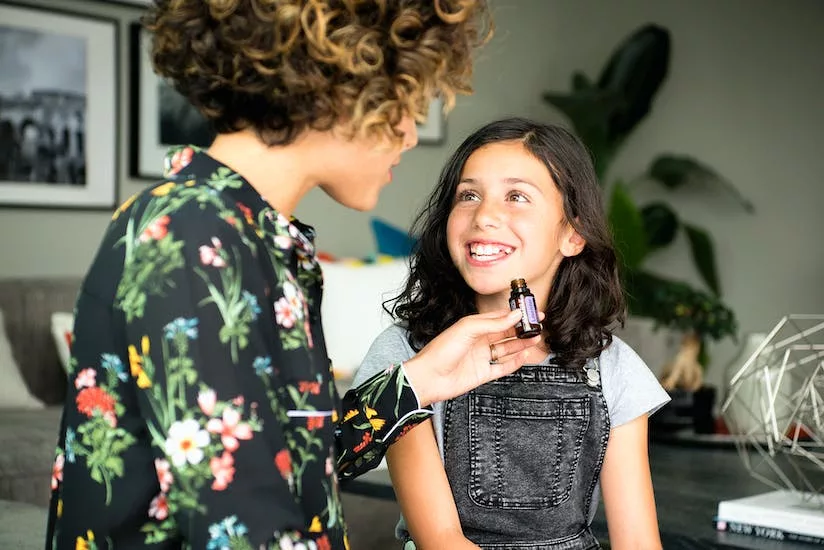The WHO estimates that around 3.5 billion people globally suffer from bad oral health. Many oral health conditions are largely preventable and rooted in forming good habits and consistency. Maintaining good oral health is not just about achieving a dazzling smile; it’s a fundamental aspect of overall well-being. A healthy mouth contributes to proper nutrition, self-esteem, and good health.
Lifestyles are constantly changing, and knowing what to do to keep your teeth safe even when you’re undergoing changes is essential. Whether for you, a loved one, or your child, you must know which habits are healthy and which harm oral health. Keep reading to understand how to enhance your oral health, from daily routines to professional dental visits, providing you with the knowledge and tools to keep your pearly whites in top-notch condition.
The Foundations of Oral Health
Daily Dental Hygiene
The cornerstone of oral care, brushing your teeth twice a day is non-negotiable. Use a soft-bristled toothbrush and fluoride toothpaste. Hold the brush at a 45-degree angle and use gentle, circular motions. Don’t underestimate the power of flossing. It removes plaque and debris between teeth and along the gumline, areas your toothbrush might miss. Further, mouthwash is something you can’t do without. A fluoride mouthwash provides an extra layer of protection. Rinse your mouth according to the product instructions, typically after brushing and flossing.
Utilizing the Right Brushing Technique
Opt for a soft-bristled brush to avoid damaging your teeth and gums. Consider an electric toothbrush for efficient cleaning. Use short, gentle strokes, focusing on each tooth’s entire surface, including the front, back, and chewing surfaces.
And don’t forget your tongue! Bacteria can accumulate on your tongue’s surface, contributing to bad breath. Gently brush or use a tongue scraper to clean it. You can also find tutorials and information online about different types of toothbrushes and tongue scrapers.
Adopting a ‘Dental-friendly’ Diet
Sugar feeds bacteria in your mouth, producing acid that can erode enamel. Limit sugary snacks and beverages. It’s also a good idea to incorporate calcium-rich foods like dairy, leafy greens, and almonds to promote strong teeth.
Snack on crunchy fruits and vegetables like apples and carrots. They help clean your teeth naturally and stimulate saliva production. Consider lessening your coffee or tea consumption, as these beverages can stain your teeth over time. You may want to drink these beverages through a straw to reduce their impact on your teeth. Water is your mouth’s best friend. It helps rinse away food particles, neutralizes acids, and keeps your mouth hydrated. Aim for at least eight glasses a day.
Habits for Oral Wellness
- Quit Smoking: Smoking contributes to gum disease, tooth decay, and tooth loss. It also stains teeth and can lead to oral cancer. Quitting is a crucial step for overall well-being.
- Limit Alcohol Consumption: Excessive alcohol consumption can lead to dehydration and a dry mouth, contributing to oral health issues. If you drink alcohol, do so in moderation.
- Avoid Nail Biting and Teeth Grinding: Nail biting and teeth grinding (bruxism) can cause chips, cracks, and enamel erosion. Consider using a mouthguard if you grind your teeth, especially at night.
- Use Sugar-Free Gum: Chewing sugar-free gum after meals stimulates saliva production, helping to neutralize acids and clean the mouth. Look for gum with xylitol for added benefits.
- Limit Specific Foods and Beverages: Acidic foods and drinks, such as citrus fruits and sodas, can erode tooth enamel over time. Limit their consumption and rinse your mouth with water afterward to neutralize acids.
Adding Holistic Practices for Better Oral Health
Holistic dentistry emphasizes the mind-body connection and recognizes the impact of stress on oral health. Practices such as mindfulness meditation, deep breathing exercises, and yoga reduce stress and positively influence oral habits like teeth grinding and clenching. Some herbs and natural supplements are believed to promote oral health. For example, aloe vera and chamomile have anti-inflammatory properties that can soothe gum irritation. Green tea, rich in antioxidants, may contribute to a healthier mouth.
Derived from Ayurvedic medicine, oil pulling involves swishing oil (commonly coconut or sesame) in the mouth for several minutes. Proponents believe it can remove toxins, reduce bacteria, and promote gum health. While scientific evidence is limited, some individuals incorporate it into their oral care routine. Emotions can affect oral health, and holistic practices recognize this connection. Maintaining positive emotional well-being, fostering healthy relationships, and addressing emotional stress can positively influence oral habits and overall health.
Importance of Dental Check-ups
Schedule regular dental check-ups at least twice a year. These appointments allow your dentist to detect issues early and provide preventive care. Professional cleanings remove plaque and tartar buildup that regular brushing and flossing might miss. It also helps prevent gum disease and cavities.
For some, dental X-rays may be necessary from time to time. Dental X-rays can reveal issues not visible to the naked eye, such as cavities between teeth, impacted teeth, and jawbone damage. Dentists often perform oral cancer screenings during check-ups, especially for those with risk factors.
Start taking your child to the dentist by their first birthday. Early visits establish good oral care habits and allow dentists to monitor development. Teach your child to brush and floss properly. Use fluoride toothpaste in a pea-sized amount once they can spit it out.
For Adults and the Elderly
Pregnant women should prioritize oral health. Hormonal changes can lead to gum sensitivity and increased risk of gingivitis. For adults, many medications can cause dry mouth. Stay hydrated, chew sugar-free gum, and consider saliva substitutes with your dentist’s guidance. You may also suffer from an impacted wisdom tooth, bad breath, dry mouth, or other dental issues. You must get these checked by a dentist before it becomes too late.
Aging can bring unique oral health challenges, including dry mouth, gum recession, and increased susceptibility to cavities. Regular dental check-ups are crucial. If you have dentures, clean them daily and ensure a proper fit. Ill-fitting dentures can cause discomfort and oral health issues.
Emergency Care for Oral Health
- Toothache: Rinse your mouth with warm water and gently floss to remove any trapped debris. Avoid placing aspirin directly on the tooth or gums. Over-the-counter pain relievers can help manage pain. Contact your dentist for an appointment.
- Knocked-Out Tooth: Hold the tooth by the crown, not the root. Rinse it gently and try to reinsert it into the socket. If not possible, place it in milk or a tooth preservation kit and seek immediate dental care.
- Cracked Tooth: Rinse your mouth with warm water and cover the broken tooth with dental wax or sugarless gum to protect your tongue. See your dentist promptly.
- Lost Filling or Crown: Use over-the-counter dental cement or sugarless gum to cover the exposed area. Schedule an appointment with your dentist for a permanent fix.
- Abscess: Gently rinse your mouth with warm saltwater to help alleviate pain and draw out infection. Seek immediate dental attention for an abscess.
Make Your Smile Brighter
Remember that your smile is more than just a reflection of your oral health; it’s a vital component of your overall well-being. By adopting these daily habits, staying informed about oral health, and incorporating additional healthy practices, you’re nurturing your smile and contributing to a holistic sense of wellness. So, embrace the power of your smile, and let it be a beacon of health and confidence in your journey toward a vibrant and fulfilling life.
By understanding the importance of oral health, practicing consistent oral hygiene, and seeking professional care when needed, you can preserve your smile and contribute to your overall well-being. Your smile is crucial to your confidence, social interactions, and even systemic health. So, let your smile shine, and take proactive steps to ensure that your oral health journey is a bright and healthy one!


